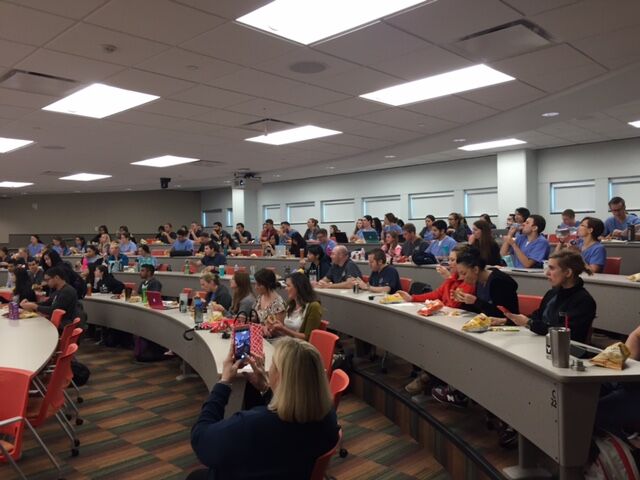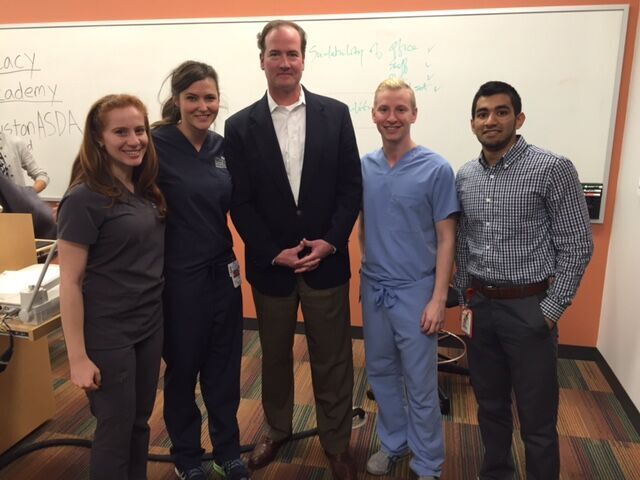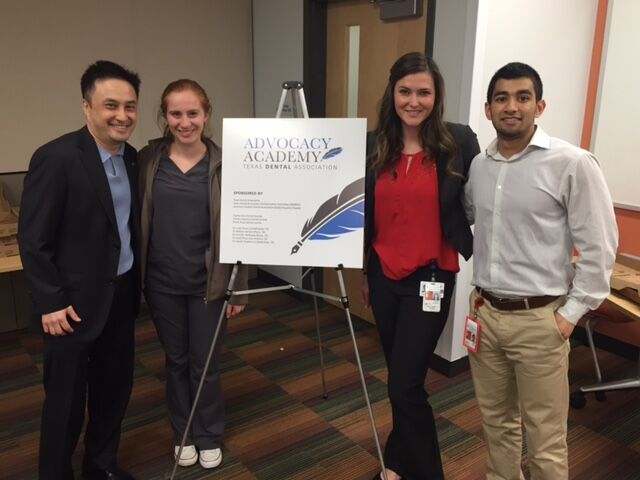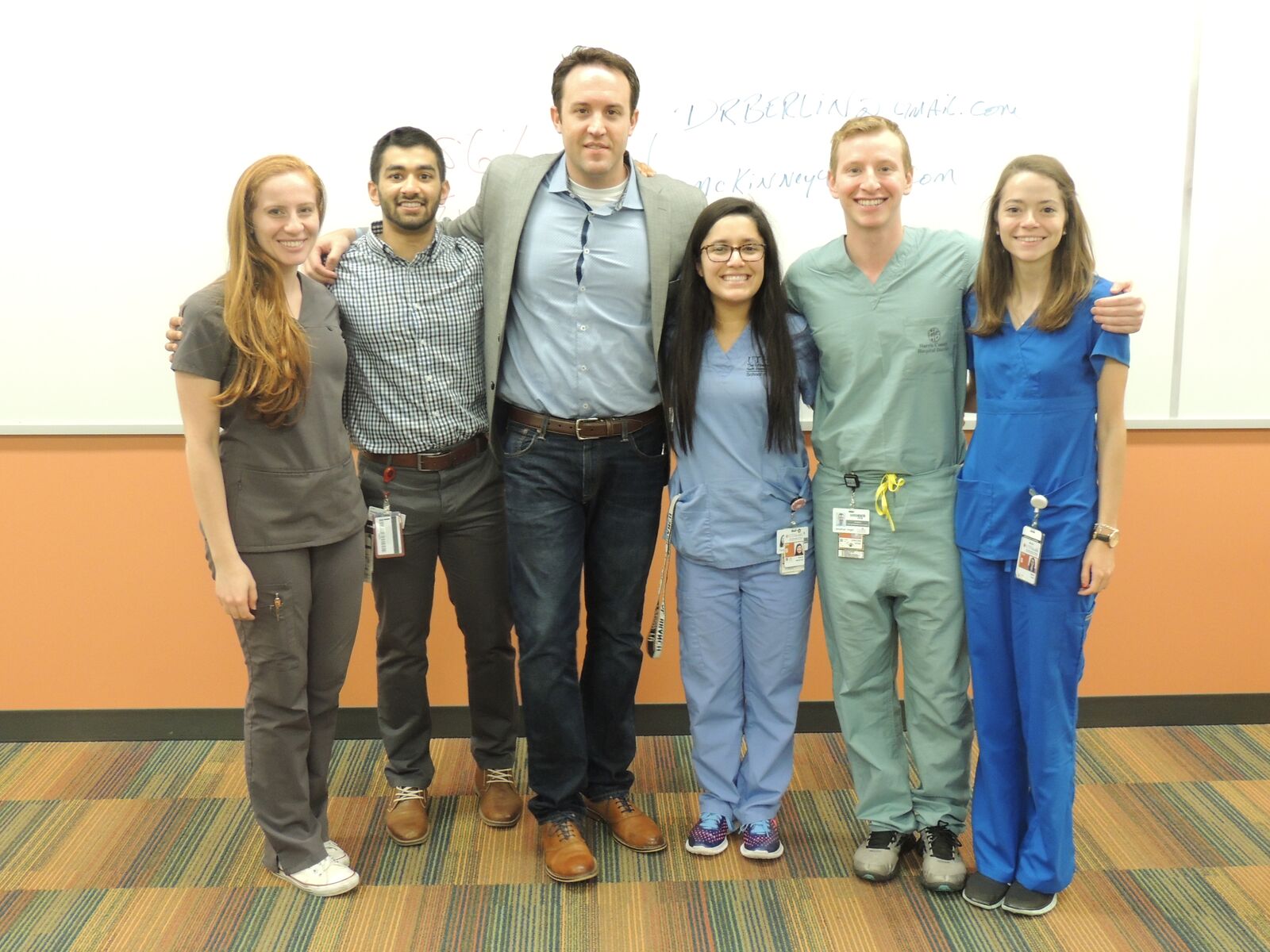Why Lobby?
To change "what is" into "what should be"
-
The purpose of organized dentistry is to use the strength of the group to deliver benefits to the individual dentist and patient
Organized dentistry is a community of independent dentists who have united to form a collective whole. Comprised of national, member-run organizations like the ADA and the Academy of General Dentistry (AGD), specialty societies like the American Association of Orthodontists and the American Association of Oral and Maxillofacial Surgeons, groups with focused interests like the American Academy of Cosmetic Dentistry, and state and local organizations like the California Dental Association and the Chicago Dental Society, these organizations take a “we’re in this together” approach to dentistry. Operating under formal governance structures, these organizations leverage the strength of the group to deliver benefits to the individual dentist and patient.
-
Without organized dentistry and advocacy, you are vulnerable
Without advocacy, insurance companies could tell you how much to charge patients, corporate employers could dictate treatment not based in science and ethics, and lawmakers could make you pay extra taxes because they think you make enough money.
There is a lot at stake. Public policy decisions are made every day with the ability to dramatically influence our profession. We must ensure that Members of Congress understand the work we do so they can make informed decisions. Only then can we be effective in our fight for and against legislation that could have a direct impact on our practice, our patients and the dental profession.
“Do I know enough to make laws on dental issues?”
Dental techniques and technologies aren’t the only things that evolve. Dental regulations also can change quickly. When they do, organized dentistry is ready to respond on behalf of individual dentists at the local, state, and national levels. Over the years, politicians have legislated a wide variety of issues that had the potential to affect your practice and your patients.
Clearly, you know more about oral health issues than do politicians. By channeling individual dentists’ voices into an industry-sized chorus that, in many cases, has a direct line to elected officials, organized dentistry ensures your knowledge and experience are brought to bear during crucial policy discussions that could impact you, your colleagues, your patients, your employees, or your community. Dental associations and societies don’t just give you a voice in political discussions. If you want to contribute more actively, they also give you a hand in them. Many organizations host legislative summits, and town hall meetings and continuing education that teach grassroots organizing, policymaking, communication, and other political skills. Whatever you want to protect—your patients, your profession, or your practice—organized dentistry is your first and best defense
-
Some of the organizations which speak on our behalf are the ADA, ADPAC, the TDA, GHDS and DENPAC. Simply being a member protects our profession. Without lifting a finger, by belonging to organized dentistry you empower those out on the front lines. If I said my organization represented 40 percent of dentists vs. 65 percent of dentists, which would compel you to listen? More members = greater impact.
Politics are far from the extent of what organized dentistry does. Organized dentistry researches products for the safety of our patients. The ADA creates standards of care and recommendations for patients and providers to promote increased oral health in our country. Organized dentistry creates a network of dentists who can look out for each other and mentor new incoming dentists. I could go on, but the key is that dentistry and the associated specialties are not simply jobs. Dentistry is a profession. By working together as a unit we can become better providers and keep our patients healthier. Everyone wins.
We are all in this together! The importance of organized dentistry has gone undervalued in recent years, as times for dentists have been so favorable. But in an era of increasing student debt, massive political change in health care, and rapidly evolving technologies, our team must again have its importance realized. Being a member of organized dentistry strengthens our profession. The dental field is great because we have protected it. If we stop, this changes. Amidst different morals and political views there are the core values we hold that brought us to this field: the foundation of organized dentistry. Join the ADA, join your local and state dental societies. What else could you do for your career and your practice that costs so little, but can do so much? Plus, there are so many other benefits to membership. It’s a no brainer. Just remember even if you don’t want a physical seat at the table, you are still on the team. Together we stand.
How Can I Get Involved?
Texas Lobby Day
Every other year, Houston ASDA sponsors a group of students to go to the capitol in Austin TX for TDA Lobby Day. Students take a bus from Houston to Austin and a briefed on current issues regarding dentistry in Texas. Recent topics have included the mid-level provider bill, making sure patients get the full benefit of their dental insurance and asking for loan-forgiveness programs to be re-funded. Students are able to meet with legislators and lobby first-hand for their profession at the state level.
National Lobby Day
National Lobby Day is a day when dental students from across the nation come together in Washington DC. We had short meetings with representatives from our state to lobby for specific bills relevant to dentists and dental students. There we conveyed the magnitude of our student debt and urged the congressmen to pass HR. 649 to allow students to take advantage of lower interest rates. Since taxpayers are wasting 3 billion dollars every year on unnecessary and unfruitful visits to the emergency room, we urged the congressmen to pass HR. 539 which would have patients diverted to a dentist and allow programs like Give Kids a Smile and Texas Mission of Mercy to apply for funds already with CDC.
Lunch and Learns
The advocacy committee hosts many events throughout the year to keep students informed of critical issues facing the dental profession. The committee hosted "Advocacy Academy," a week-long production consisting of an event everyday, teaching students about the importance of organized dentistry, a basic introduction into the workings of the government and how lobbying fits in, current issues facing the dental profession, and advocacy form the student's perspective. The committee has also hosted many innovative lunch and learns, including one conducted in a "family feud" game about advocacy issues and one conducted as a courtroom with a judge presiding over the meeting and mediating both perspectives.
ADPAC: The Most Effective Way to Influence Dental Policy
What is ADPAC?
ADPAC is an acronym for the American Dental Political Action Committee. It is essentially the legislative arm of the ADA. In other words, this committee makes sure that dentists all across the beautiful U.S. of A have some friends in Washington D.C. looking out for the interests of dentists and ultimately the interest of the patients. For the sports fans out there, consider a pitcher that is walking batters left and right. The coach has to make a call, and get a guy in there who can perform. In this incredibly well thought out metaphor, ADPAC is the coach and the pitchers are legislators. Dentists want legislators that can perform on their behalf.
How does this work?
How does ADPAC make friends you may ask? Well, quite simply they elect congressional candidates who understand the dentistry is important to overall health. They may then supply funds to their campaign, or opportunities that will increase the likelihood of getting them into office. ADPAC obtains these funds from donations. These donations come from dentists, and (clearing of the throat sound) dental students. From the previous baseball metaphor this would make you, the donor, the owner of the team.
Why should you donate?
Typically, when one graduates from a dental institution they may find themselves practicing dentistry. The legislative process is slow; meaning that decisions made on The Hill today may affect you in 20 years. In fact, one could argue that they are affecting you today (Oh, hello student debt!). Therefore, it is critical that you begin the good fight today. If you are anything like me, dentistry has seeped into every aspect of your life. Not a single day goes by that I don’t do something related to school. I work too hard to let the political environment change the profession that I sweat, stress, and bleed for (I cut myself with the Hollenback once). I am not waiting to be a part of dentistry; I am a part of dentistry.
With a mere $5 you are considered a member of ADPAC. If you are feeling like you want to make more of an impact $50 will get Capital Club membership. You will receive a lapel pin indicating your level of donation, which I would highly recommend wearing to dental conferences (Oh, Hello Star of the South). You might be surprised at who ends up shaking your hand.
This method of advocacy is the most effective way to protect dentist interest. Why? Because getting a person in office who cares about our issues will increase the probability of bettering dental care not just today, not just tomorrow, but for the ENTIRETY OF THEIR TERM IN OFFICE!!! Talk about return on investment.
If you are interested in learning more please attend the annual HoustonASDA ADPAC Drive or contribute directly athttp://www.ada.org/en/advocacy/adpac.






